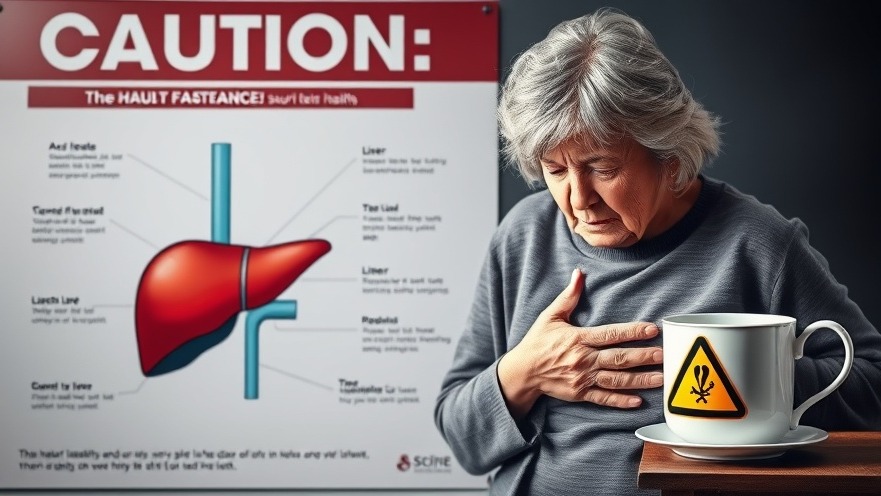
Are Your Herbal Teas Doing More Harm Than Good?
Herbal teas are often marketed as natural solutions for stress relief and overall health. However, many popular teas can pose serious health risks that go unnoticed in our daily routines. Recent discussions about the dangers of certain herbal teas have shed light on the hidden threats that lurk behind labels promising wellness. Let's explore five specific teas that could be damaging your body without you even realizing.
In 'NEVER Drink These 5 Teas,' the discussion dives into the hidden risks associated with popular herbal teas, exploring insights that sparked deeper analysis on our end.
Tea Number Five: The Silent Prescription Killer
First on the list is St. John's Wort. This tea is popularly advertised as a remedy for anxiety and depression, but it has a troubling side effect: it can completely nullify the effectiveness of various medications, including birth control pills and anti-depressants. By speeding up an enzyme in the liver responsible for drug breakdown, just one cup a day can drastically reduce how long medications stay in your system, which can lead to serious health repercussions. For individuals depending on these medications for their mental health, this reliance on St. John's Wort becomes a ticking time bomb.
Tea Number Four: The Risky Slimming Teas That Deceive
Next is the controversial slimming tea, such as 50 Herbs. These teas often feature laxative ingredients like senna and promise rapid weight loss, but they do so at a significant cost to your digestive health. The rush towards quick results leads consumers to overlook the fact that they might be damaging their organs while only shedding water weight. Over time, relying on laxatives can weaken your digestive system, causing long-term health issues.
Tea Number Three: Hazardous for Expecting Mothers
For pregnant women, certain herbal teas can be particularly hazardous. Ingredients like rue, pennyroyal, and bulldo possess properties historically known to induce contractions, greatly increasing the risk of miscarriage. Unfortunately, many individuals remain unaware of these dangers, consuming these herbs casually without considering their potent effects on hormonal balance and pregnancy.
Tea Number Two: The Hidden Kidney Risks
Sometimes, the appeal of exotic fruits leads us to overlook their dangers. Many teas contain star fruit, which can be toxic for those with kidney issues. This beautiful yellow fruit includes natural toxins that accumulate in the bloodstream and can lead to neurological symptoms, including seizures, especially in individuals with underlying kidney problems. Similarly, hibiscus tea can act as a diuretic, increasing the risk of dehydration and an electrolyte imbalance, which can further compromise kidney function.
Tea Number One: The Liver’s Worst Nightmare
Finally, no discussion about dangerous teas is complete without mentioning cava. Marketed as a calming drink, this tea has been associated with severe liver damage and failure, necessitating urgent medical interventions in some cases. Despite its soothing reputation, cava can cause hepatitis and inflammation in the liver, especially in older adults whose liver functions are naturally declining. The shocking part is that it remains legal and widely available, leaving many consumers unaware of its potential hazards.
The Importance of Awareness in Herbal Tea Consumption
The information surrounding these teas emphasizes the need for caution and in-depth awareness regarding what we consume. Just because a product is labeled as 'natural' does not mean it is safe. As consumers, being informed about the ingredients and their effects plays a crucial role in supporting our health.
What Can You Do?
Incorporating safe and beneficial herbal teas into your life can enhance well-being, but transparency is key. Opt for organic single-ingredient teas with clear labeling. When considering herbal remedies or supplements, investigate thoroughly and consult health professionals, particularly if you're pregnant or taking prescriptions. Taking proactive steps now can help ensure a healthier lifestyle.
If you are concerned about the teas you enjoy or want to explore better options for wellness, it's time to reassess your herbal choices. Share your thoughts or experiences with herbal teas below, and remember that knowledge is essential—stay informed, stay safe!
 Add Element
Add Element  Add Row
Add Row 




Write A Comment